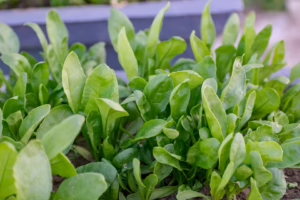The Future of Food: How Nutrition Education is Shaping Sustainable Eating
In recent years, food systems around the world have undergone significant transformations driven by a variety of factors—climate change, evolving consumer preferences, and technological advancements among them. One of the most crucial threads interwoven throughout these changes is nutrition education. Proper education about nutrition not only empowers individuals to make healthier choices but also encourages sustainable eating habits that are essential for the future of our planet. This article explores the various dimensions of nutrition education and how it is shaping sustainable eating practices.
Understanding Nutrition Education
Nutrition education encompasses a broad spectrum of activities that aim to provide individuals with the knowledge and skills necessary for making informed food choices. This education can take place in various settings, including schools, community programs, and healthcare facilities. The core components of effective nutrition education include understanding macronutrients and micronutrients, the importance of balanced diets, and the implications of dietary choices on health and the environment.
The Evolution of Nutrition Education
Historically, nutrition education focused primarily on the biological aspects of food—what it is, its components, and its role in human health. However, in recent years, the scope has expanded to include broader topics like sustainability, ethical consumption, and global food systems. Nutritional guidelines now place significant emphasis on plant-based diets, reduction of animal products, and choosing locally sourced foods, reflecting an understanding that dietary choices impact not only individual health but also the health of our planet.
The Role of Sustainable Eating
Sustainable eating refers to food consumption practices that are mindful of the environmental, social, and economic impacts of food production and consumption. These practices encourage the use of resources in a way that meets current needs without compromising the ability of future generations to meet their own. Essentially, sustainable eating intersects with nutrition education to promote healthier diets while also advocating for practices that are less harmful to the environment.
Why Sustainable Eating Matters
The urgency for sustainable eating cannot be overstated. As the global population approaches 10 billion by 2050, food production must double to meet increased demand. Traditional agricultural practices, however, are contributing to land degradation, biodiversity loss, and climate change. Sustainable eating provides an avenue to address these challenges, emphasizing the importance of minimizing waste, reducing energy consumption, and employing environmentally-friendly farming practices.
Nutrition Education as a Tool for Change
1. Increasing Awareness and Knowledge
Nutrition education plays a pivotal role in increasing awareness about the environmental and health implications of food choices. By equipping individuals with information regarding where their food comes from, its nutritional value, and its environmental impact, nutrition education fosters critical thinking and encourages mindful consumption.
For instance, programs that educate consumers about the carbon footprint of different foods can lead to conscious choices among individuals to favor plant-based options over meat. According to a study by the University of Oxford, shifting to a plant-based diet can reduce an individual’s food-related carbon footprint by up to 73%[1].
2. Promoting Plant-Based Diets
As mentioned, a significant focus of nutrition education has shifted toward promoting plant-based diets. Research has shown that plant-based diets are not only healthier—reducing the risk of chronic diseases—but also much more sustainable than diets heavy in animal products.
Organizations such as the World Health Organization (WHO) recommend plant-based diets as part of their nutritional guidelines due to their numerous health benefits, including lower rates of obesity, heart disease, and certain types of cancer[2].
3. Integrating Local Food Systems
Nutrition education increasingly emphasizes the benefits of supporting local food systems. Eating locally sourced food not only reduces the carbon footprint associated with food transportation but also fosters community resilience and supports local economies. Educational programs that introduce consumers to local farmers and seasonal produce can strengthen this connection.
A report from the Food and Agriculture Organization (FAO) highlights that local food systems are vital for promoting food security and sustainability, asserting that they should be integrated into national agricultural policies[3].
Modern Strategies in Nutrition Education
1. Digital Platforms and Technology
The advent of digital technology has revolutionized the dissemination of nutrition education. Apps, social media, and online courses offer unprecedented access to information regarding food choices and healthy eating. These platforms allow individuals to engage with experts, join communities focused on sustainable eating, and share personal experiences.
For instance, apps like MyFitnessPal not only track caloric intake but also emphasize the nutritional value of different foods. Incorporating features that inform users about the sustainability of food products can further encourage environmentally conscious choices.
2. Cooking Classes and Workshops
Hands-on cooking classes and workshops provide a practical approach to nutrition education, helping individuals understand how to prepare healthy meals that are also sustainable. Such classes typically focus on utilizing seasonal and locally sourced ingredients, thus reinforcing lessons about sustainable agriculture.
Statistics from a study conducted by the Journal of Nutrition Education and Behavior show that participants in cooking classes demonstrate improved dietary habits and increased confidence in preparing healthy meals[4].
3. School-Based Programs
Integrating nutrition education into school curricula is an effective way to foster sustainable eating habits from a young age. Programs that teach children about healthy eating, gardening, and the environmental impacts of food choices serve as foundational lessons that can persist into adulthood.
Initiatives like the USDA’s Farm to School program highlight the importance of local agriculture, ensuring that children have access to fresh and nutritious food while learning about where their food comes from[5].
Challenges in Nutrition Education
While the advantages of nutrition education for promoting sustainable eating are clear, there are significant challenges to its implementation.
1. Economic Barriers
Accessing nutritious food can be economically challenging, especially in low-income communities where food deserts exist. Even the best nutrition education programs may fail if individuals lack access to healthy food options.
To address these disparities, collaborations among local governments, nonprofit organizations, and educational institutions are required to ensure equitable access to healthy foods.
2. Cultural Sensitivity
Nutrition education programs must be culturally sensitive and inclusive, respecting diverse dietary habits and preferences. What is considered a sustainable diet can vary widely based on cultural contexts, and education must tailor its approach accordingly to be effective.
Research has shown that culturally relevant interventions lead to better health outcomes, as they resonate more deeply with participants and can significantly influence behavior change[6].
3. Misinformation and Challenges in Advocacy
The prevalence of misinformation about nutrition and food can undermine the effectiveness of education initiatives. False claims about diets, food products, and health benefits can confuse consumers and hinder informed decision-making. Nutrition education must strive to combat this misinformation through credible sources and ongoing advocacy.
Future Directions in Nutrition Education
Looking toward the future, several key trends are poised to shape nutrition education and its role in sustainable eating:
1. Personalized Nutrition
The future may see a shift toward personalized nutrition education, where dietary recommendations are tailored to an individual’s genetic makeup, lifestyle, and health status. Advances in scientific understanding and technology could empower consumers to make choices that are optimally healthy and sustainable based on their unique circumstances.
2. Sustainable Food Innovation
As the focus on sustainability continues to grow, there will likely be an increase in innovation within the food industry aimed at reducing environmental impacts. Nutrition education should include information about these advancements, such as lab-grown meats or plant-based alternatives, helping consumers to make informed choices regarding emerging food technologies.
3. Policy Integration
A coordinated approach involving policymakers, educators, and community leaders can integrate nutrition education more effectively into public health strategies. This can include funding for nutrition education programs, incentives for local food purchasing, and legislation aimed at supporting sustainable agricultural practices.
Conclusion
Nutrition education is at the forefront of driving sustainable eating practices, which are crucial for both individual health and the health of our planet. By empowering consumers with knowledge and skills, we can foster a culture of mindful consumption that prioritizes sustainability.
As nutrition education evolves, it must adapt to address emerging challenges and leverage modern tools to create a more sustainable food future. The collaboration of individuals, communities, governments, and organizations will be essential for ensuring that nutrition education not only informs but also inspires action toward a healthier, more sustainable world.
Footnotes
- “Reducing food’s environmental impacts through producers and consumers.” University of Oxford, 2018.
- “Healthy Diet.” World Health Organization, 2020.
- “Local Food Systems.” Food and Agriculture Organization, 2015.
- “Impact of Cooking Classes on Food Preparation Attitudes and Skills.” Journal of Nutrition Education and Behavior, 2019.
- “Farm to School: Partners in Healthier School Meals.” USDA, 2021.
- “Culturally Relevant Nutrition Education Interventions.” Nutritional Health Studies, 2020.
This article offers a comprehensive overview of how nutrition education is shaping sustainable eating practices and highlights the existing challenges and future directions in this field. Each section underscores the importance of informed dietary choices and their impact on individual health, community well-being, and environmental sustainability.


























Add Comment